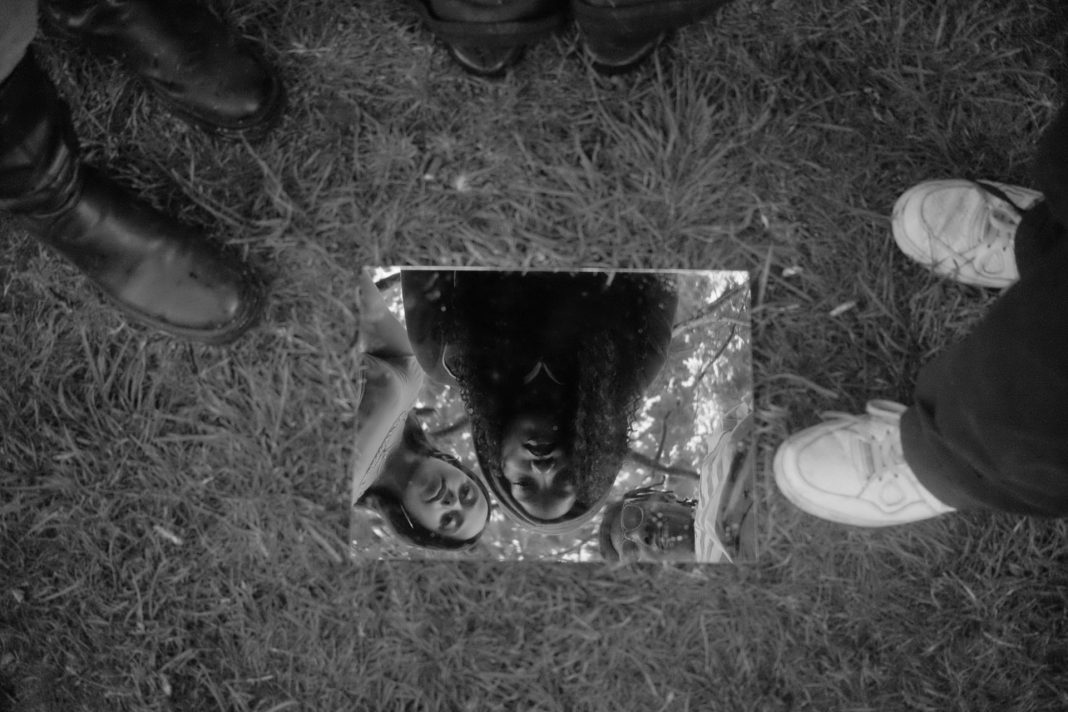So Far, So Good is a student-written, student-performed play that is shaking up the conventions of Oxford’s student theatre. From its ambitious staging (think live DJ sets and student photography transformed into a set design) to its commitment to long-lasting impact; So Far, So Good refuses to be confined to the four walls of its performance space or to be forgotten a week after its first showing.
Cherwell sat down with writer and director Melissa Chetata-Brooks to explore how So Far, So Good marks a bold new direction for student theatre at Oxford.
Cherwell: What inspired you to write the play?
Melissa: Honestly, I just thought why not? I’d recently developed a love for writing poetry and I wanted to challenge myself to go further with my writing. That’s where So Far, So Good came from. The main inspiration of the themes and aesthetic is La Haine. It’s my favourite film because it’s the only film I’ve ever watched that left me completely speechless. I literally couldn’t speak. But then afterwards came years of talking, protesting, writing, forming opinions. That’s the power of a piece like that: it gives you a moment to shut up, take something in, process it, and then respond. If even one person leaves the play feeling a little bit shocked or moved I’ll consider it a success. Because that silence, that pause: For me that’s where change begins. And that ethos is embedded in every part of the aesthetic.
Cherwell: And what do you feel is unique to staging a student-written play versus one by a more established playwright?
Melissa: The major difference is that you have nothing to go off of, no past productions, interpretations, or critical expectations. On the one hand, this makes things easier: you’re free from the pressure of staying true to an established vision so there’s no risk of feeling like you’re doing a disservice to the original work since you’re not adapting anything. However, this freedom is scary. Without a clear blueprint, everything relies entirely on your choices and your assistant director’s etc, so there’s no right or wrong to fall back on. Criticism of an adaptation usually reflects on the original playwright but in this case, all eyes are on you. If it doesn’t land, it’s not the famous playwright that people question, it’s your creative vision.
Cherwell: Why is it important to ensure student voices and student writers remain central within student theatre?
Melissa: Student theatre can push toward inclusivity by broadening its definition of what theatre is. It’s not just about acting, it’s a space where so many art forms can intersect. Music, visual art, film, photography, digital media and all of these have a place in the dramatic space. By embracing multimedia and encouraging collaboration across disciplines, student theatre opens its doors to people who may not have seen themselves represented onstage, but who have just as much to say and create. Not everyone wants to act, and not everyone has been given the chance to, but by reimagining what it means to be a theatre-maker, we can create spaces where more voices, talents, and stories are not only welcomed but celebrated.”
Cherwell: How resistant is the theatre space in celebrating more voices and talents?
Melissa: I don’t think that there is an explicit resistance or refusal to be inclusive, it’s just that for me, saying at the bottom of an audition pack ‘we encourage all those from diverse backgrounds to apply’ simply isn’t enough, it’s too passive. At least with the casting of So Far, So Good, I found that to find actors – and believe me they are out there – who are non-white, non-regulars, you as a producer and director have to put the effort in to advertise and encourage those to engage with the project, whether that be in group chats such as the ACS or different JCR’s.
Cherwell: How do you hope to see the Oxford theatre scene change/develop in the future?
Melissa: I hope that there are even more student-written productions, with more new, unfamiliar faces. I think that the concept of the BAME play is great, don’t get me wrong, but I hope I can one day watch a play in Oxford that has both a cast and crew which is diverse in its representation of race, gender and sexuality, and it not have to be labeled as such in order to be so, instead just considered a play like any other. True representation shouldn’t feel like a special category, it should be the norm.
Cherwell: How does So Far, So Good fit into this?
Melissa: I hope people will look at me and my limited experience and think, well if she can put on a play then why couldn’t I do just that and do it better?! Beyond the student theatre community, I hope it will raise awareness about themes that, to some, might feel like just theatre but are actually reflections of real life. I want it to remind audiences that these aren’t just dramatic plotlines or abstract ideas; they are real experiences, real struggles, and real people.
Theatre has the power to enact real change and if this play can get even a few people to see things differently or think a little deeper, then it has done its job.


